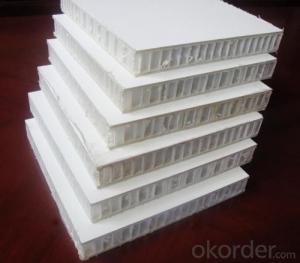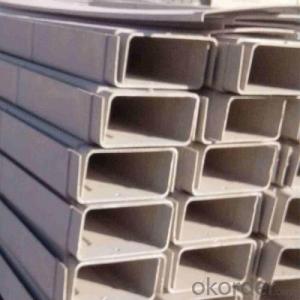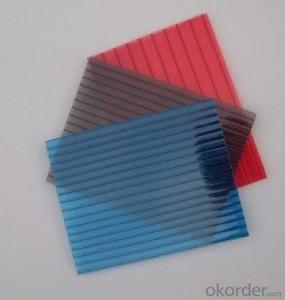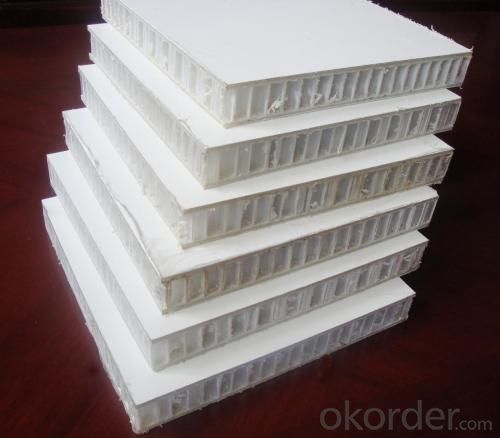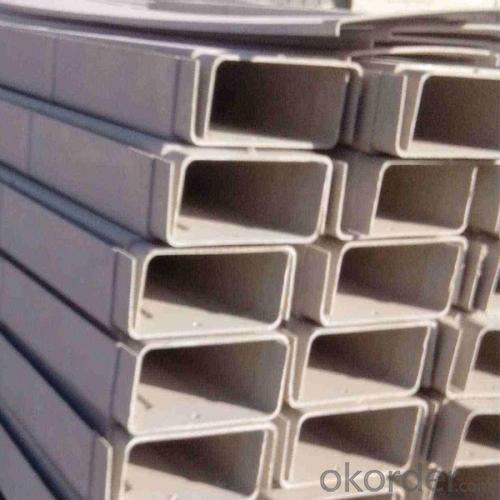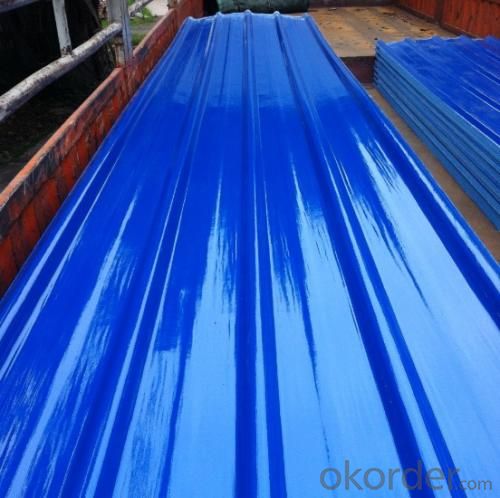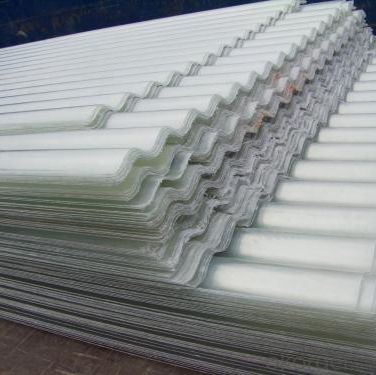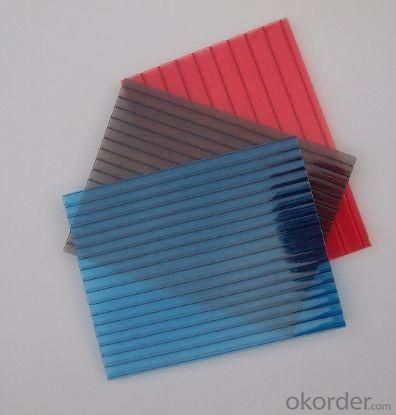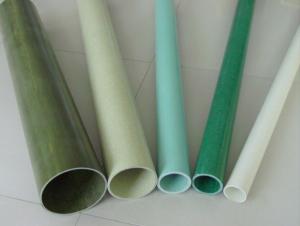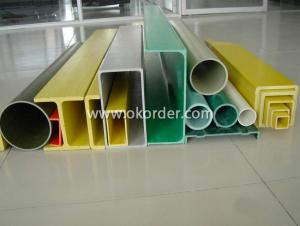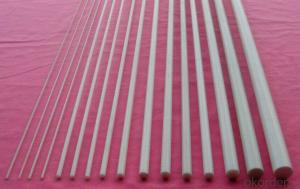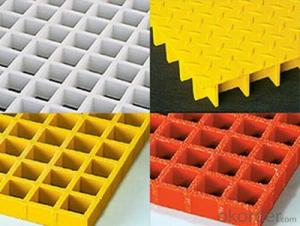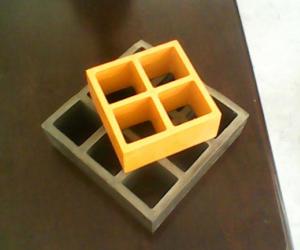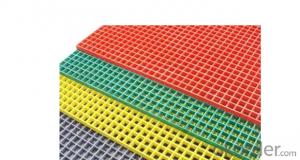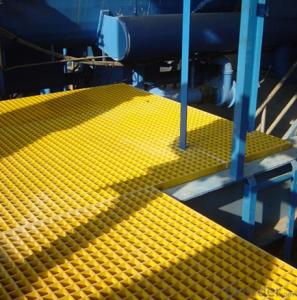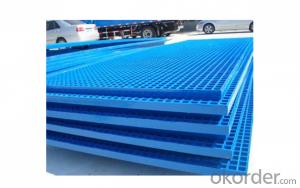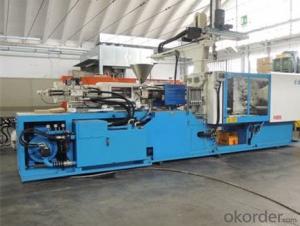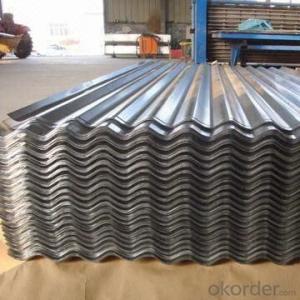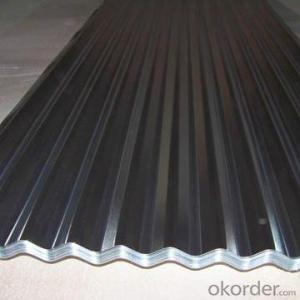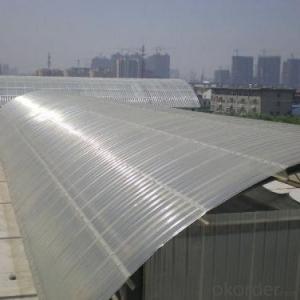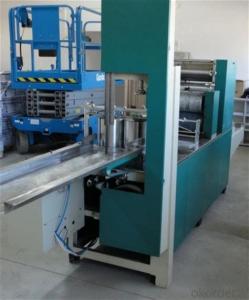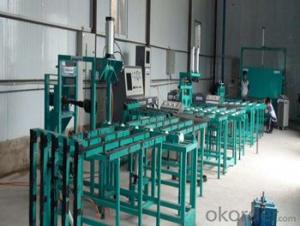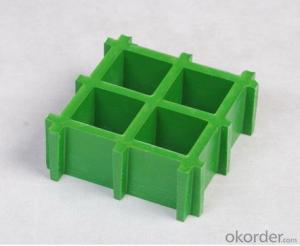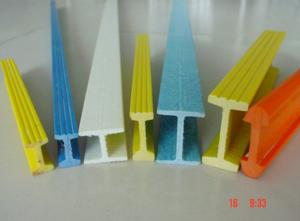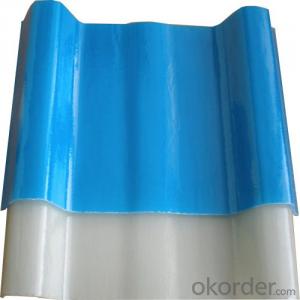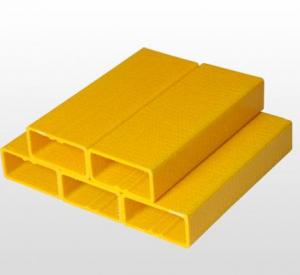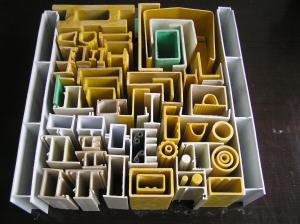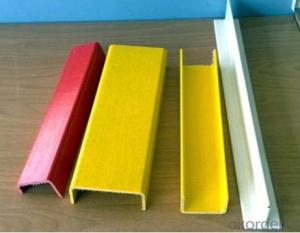FRP Pultrusion Profiles:FRP Pultruded Grating with Anti-Fatigue and Good Quality in Different Styles
- Loading Port:
- Tianjin
- Payment Terms:
- TT OR LC
- Min Order Qty:
- 1 m.t.
- Supply Capability:
- 100000 m.t./month
OKorder Service Pledge
OKorder Financial Service
You Might Also Like
PRODUCT DESCRIPTION
Pultruded grating is made by a particular assembly process, which using “I” shape as its main load-bearing and special rod to go through the bearing bar. Pultruded grating include the standard grating and the custom grating, the custom grating can be designed to meet customer’s requirement or special using condition by changing the shape, size and space of the bearing bars, the surface can be covered with lozenge panel, grit panel, or added the anti-slippery sand directly.
FRP pultruded grating has the most characteristics of molded grating, but it has its distinct advantages, it has very high fiberglass content in the loading direction, so it has very high load capability, it has more superiority when used at wide span, so that the basic support will be decreased and the project cost will be reduced accordingly.
SPECIFICATION
The standard space between two crossbars is 6 inch or 12 inch.
Thickness (mm) | Bar width (mm) | Open space (mm) | Open rate (%) | Approx weight (kg/m |
25.4 | 15.2 | 22.8 | 60 | 13.2 |
25.4 | 15.2 | 15.2 | 50 | 15.9 |
25.4 | 15.2 | 10.1 | 40 | 18.5 |
25.4 | 40 | 10.8 | 21 | 14.5 |
38.1 | 15.2 | 22.8 | 60 | 15.8 |
38.1 | 15.2 | 15.2 | 50 | 19.1 |
38.1 | 15.2 | 10.1 | 40 | 22.4 |
50.8 | 25.4 | 25.4 | 50 | 16.6 |
50.8 | 25.4 | 12.7 | 33 | 21.1 |
CHOICE FOR PULTRUDED GRATING
Resin: GP resin, ISO resin, VE resin, Phenol resin
Color choice: Yellow, gray, green, custom color
Surface choice: Groove surface, grit surface, lozenge cover surface
FEATURES
a. Anti-corrosion and anti-rust
b. Light weight and high strength
c. Anti-flammable
d. Anti- fatigue
e. Safe and anti-slippery
f. Anti-ageing
g. Easy of maintenance
FIELDS SERVED
Sewage treatment,
water supply and drainage,
chemical industry,
oil industry,
power engineering,
pulp and paper,
construction engineering,
spinning, marine engineering.
APPLICATION
Operation terrace,
stair walkway,
ground floor,
trench cover,
sidewalk,
foot bridge,
equipment safety fence,
scaffold.
COMPANT DESCRIPTION
CNBM,China National Building Materials Group is a state-owned enterprise in charge of administrative affairs in china building materials industry. Established in 1984, CNBM is a large group corporation of building materials with total assets of 25 billion RMB and a total staff of 30,000.CNBM now owns 200 subordinating firms of solely owned and joint-venture companies.
CNBM International Corporation is one subsidiary of CNBM, we focus on offering good-quality products,professional service and complete solution to our customers. Strong delivery capacity, advanced technology& management, strong financing capability and excellent after-sale service are our advantages in sharing international market.
FAQ
Q1.What's your sample policy?
A:We can supply the sample if we have ready parts in stock, but the customers have to pay the courier cost.
Q2.Can you produce according to the samples?
A: Yes, we can produce or modify the products according to your request.
Q3.How do you deliver the goods to my country?
A:We can provide international express, such as DHL, EMS, UPS, FedEx, etc. We select air freight and sea freight upon your requests. Quotations if without mentioning the shipping costs are shipping fee excluded.
Q4.How much does it cost to ship to my country?
A:When you goanna to place an order, please contact us, because different country has different freight.
Q5.How to get the catalogue?
A:please contact us and tell us what you are looking for.
We will try our best to meet customers' demands. Welcome you come here to visit us. We sincerely welcome partners around the world to establish business cooperation with us on the basis of mutual trust, benefit and development.
PICTURES
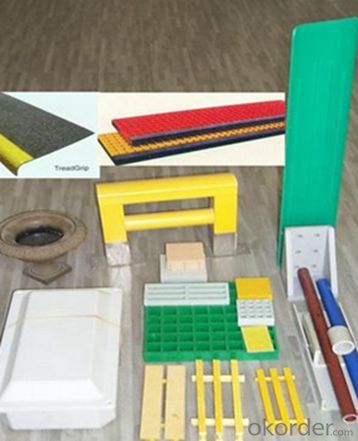
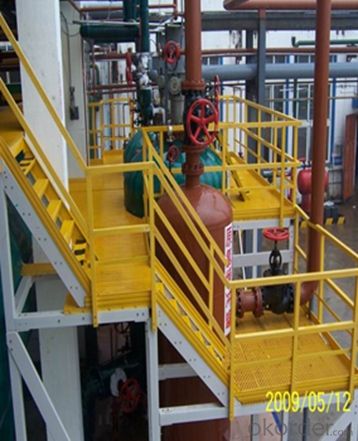
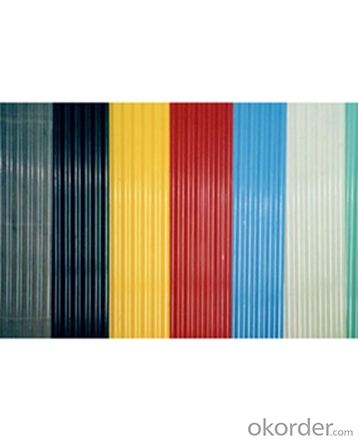
- Q: Can FRP pultrusion profiles be used in the construction of railway sleepers?
- The use of FRP (Fiber Reinforced Polymer) pultrusion profiles is indeed possible in the construction of railway sleepers. These profiles possess a range of advantages that render them suitable for this particular application. To begin with, the lightweight yet robust nature of FRP pultrusion profiles makes them an ideal option for railway sleepers. They boast high strength-to-weight ratios, enabling them to withstand heavy loads and reliably support the weight of trains. Moreover, their lightweight constitution facilitates transportation and installation, thereby reducing construction time and costs. Additionally, FRP pultrusion profiles exhibit a high resistance to corrosion, a crucial aspect for railway sleepers. Unlike traditional materials such as wood or steel that are prone to corrosion when exposed to moisture and chemicals, FRP profiles are non-corrosive. Consequently, they do not necessitate regular maintenance or replacement due to rust or decay. Furthermore, these profiles offer exceptional durability and longevity. They can withstand UV radiation, extreme temperatures, and chemicals, ensuring a longer lifespan compared to conventional materials. As a result, the need for frequent replacements is minimized, leading to reduced maintenance and lifecycle costs. Moreover, FRP pultrusion profiles can be tailored to meet specific design requirements. They can be manufactured in various shapes and sizes to accommodate different railway sleeper designs, providing flexibility in construction. Additionally, they can be produced in different colors, allowing for aesthetic customization. Lastly, FRP pultrusion profiles possess excellent electrical insulation properties, a critical factor for railway sleepers. They are capable of providing insulation between the train tracks and the ground, preventing electrical interference and ensuring safe operation. In conclusion, FRP pultrusion profiles are a suitable choice for constructing railway sleepers due to their lightweight yet strong composition, corrosion resistance, durability, customization options, and electrical insulation properties.
- Q: The manufacturing process of FRP products?
- Each technique has its own characteristics. Production enterprises determine the process method in the selection, according to the basic situation of the enterprise and the production of products, such as mass production and product quality requirements, as well as the technical basis for enterprise capital and production factors such as comprehensive consideration.
- Q: Are FRP pultrusion profiles UV-resistant?
- FRP pultrusion profiles are known for their UV resistance. This is because they are made by combining reinforcing fibers, like glass or carbon, with a polymer matrix, such as polyester or vinyl ester. These materials naturally resist UV radiation, allowing FRP pultrusion profiles to endure long exposure to sunlight without significant deterioration or loss of mechanical properties. However, it's important to note that the UV resistance of FRP pultrusion profiles can vary based on the polymer matrix's type and quality used in their manufacturing. Thus, it is recommended to consult the manufacturer or supplier for detailed information regarding the UV resistance of specific FRP pultrusion profiles.
- Q: Are FRP pultrusion profiles resistant to chemicals used in oil refineries?
- Yes, FRP (Fiber Reinforced Polymer) pultrusion profiles are highly resistant to chemicals used in oil refineries. The composition of FRP profiles includes a combination of high-strength fibers, such as fiberglass, carbon fibers, or aramid fibers, embedded in a polymer resin matrix. This unique construction provides excellent resistance to a wide range of chemicals, including those commonly found in oil refineries. The polymer resin matrix used in FRP profiles can be carefully selected to withstand harsh chemical environments. For instance, vinyl ester or epoxy resins are often used in the manufacturing of FRP profiles for oil refinery applications due to their superior chemical resistance properties. Moreover, FRP pultrusion profiles are inherently corrosion-resistant, unlike traditional materials like steel or concrete, which can deteriorate when exposed to aggressive chemicals found in oil refineries. This corrosion resistance ensures the long-term durability and reliability of FRP profiles in such environments. Additionally, FRP profiles offer several other advantages in oil refinery applications, including high strength-to-weight ratio, electrical insulation, non-magnetic properties, and ease of installation. These characteristics make FRP pultrusion profiles an ideal choice for various structural, piping, and equipment applications within oil refineries. However, it is essential to consider the specific chemicals and concentrations involved in a particular oil refinery application. While FRP profiles generally exhibit excellent resistance to a wide range of chemicals, there might be certain highly concentrated or specialized chemicals that could potentially affect their performance. In such cases, it is advisable to consult with FRP manufacturers or experts who can provide tailored solutions to meet the specific chemical resistance requirements of the oil refinery.
- Q: Can FRP pultrusion profiles be used in the construction of water treatment plants?
- Yes, FRP (Fiber Reinforced Polymer) pultrusion profiles can be used in the construction of water treatment plants. FRP pultrusion profiles offer several advantages such as high strength-to-weight ratio, corrosion resistance, and durability, making them well-suited for water treatment plant applications. These profiles can be used in various structural components like beams, columns, grating, and handrails, providing a cost-effective and long-lasting solution for the construction of water treatment plants.
- Q: How do FRP pultrusion profiles perform in high-traffic areas?
- FRP pultrusion profiles are an excellent choice for high-traffic areas due to their exceptional performance characteristics. These profiles are made of reinforced fiberglass and resin, resulting in a highly durable material that can withstand heavy loads and constant foot traffic. One of the key advantages of FRP pultrusion profiles is their high strength-to-weight ratio. This makes them lightweight yet incredibly strong, allowing them to handle heavy loads without sacrificing their structural integrity. Additionally, their non-corrosive nature makes them ideal for areas with high foot traffic, where exposure to moisture, chemicals, and other corrosive elements is common. FRP pultrusion profiles also possess excellent resistance to wear and abrasion. This means that even in high-traffic areas, where constant footfalls and movement can cause conventional materials to deteriorate quickly, FRP profiles remain unaffected, maintaining their original appearance and functionality for an extended period. Furthermore, these profiles are highly resistant to UV radiation, which means they do not degrade or fade when exposed to sunlight. This is particularly important for high-traffic areas that are outdoors or have large windows, as the profiles will maintain their strength and aesthetics even under constant exposure to the sun. In terms of maintenance, FRP pultrusion profiles require minimal upkeep. They do not require regular painting or sealing, as their color and finish are built into the material itself. This significantly reduces maintenance costs and efforts, making them a cost-effective choice for high-traffic areas. Overall, FRP pultrusion profiles are an excellent option for high-traffic areas due to their exceptional strength, durability, resistance to wear and abrasion, non-corrosive properties, UV resistance, and low maintenance requirements. Their ability to withstand heavy loads and constant foot traffic ensures their long-lasting performance, making them a reliable choice for any high-traffic environment.
- Q: Are FRP pultrusion profiles resistant to chemicals used in power plants?
- Yes, FRP pultrusion profiles are highly resistant to chemicals commonly used in power plants. The composite materials used in their construction, such as fiberglass and resin, offer excellent resistance to corrosion and chemical attack. This makes FRP pultrusion profiles a durable and reliable choice for various applications in power plants, including structural components and equipment.
- Q: How do FRP pultrusion profiles perform in extreme cold temperatures?
- FRP pultrusion profiles generally perform very well in extreme cold temperatures. This is due to the inherent properties of the materials used in their construction. FRP (fiber-reinforced polymer) composites are known for their excellent thermal insulation properties, which help to maintain the structural integrity of the profiles even in extremely low temperatures. One key advantage of FRP pultrusion profiles in cold environments is their resistance to freezing and thawing cycles. Unlike some other materials, FRP does not absorb water, which means it does not expand or contract with temperature changes. This prevents cracking or damage that can occur when moisture freezes and expands within traditional materials such as metal or concrete. Furthermore, FRP pultrusion profiles have a low coefficient of thermal expansion, meaning they do not significantly expand or contract with temperature fluctuations. This stability allows them to maintain their shape and structural integrity in extreme cold, reducing the risk of deformation or failure. In addition to their thermal properties, FRP pultrusion profiles also exhibit high strength and durability, making them suitable for use in various applications such as construction, infrastructure, and transportation, even in harsh cold environments. They are resistant to corrosion, chemicals, and UV radiation, further enhancing their performance and longevity in extreme conditions. Overall, FRP pultrusion profiles are an excellent choice for applications requiring reliable performance in extreme cold temperatures. Their thermal insulation properties, resistance to freezing and thawing cycles, low coefficient of thermal expansion, and overall strength and durability make them well-suited for various industries and environments, ensuring their continued performance even in the harshest cold conditions.
- Q: Can FRP pultrusion profiles be used in oil and gas applications?
- FRP pultrusion profiles are applicable for oil and gas purposes. These profiles possess exceptional resistance against corrosion, a high strength-to-weight ratio, and durability, making them suitable for a range of industries, including oil and gas. In oil and gas applications, FRP pultrusion profiles can serve multiple functions. They find use in constructing pipelines, offshore platforms, and subsea structures. They can also be utilized for fabricating tanks, vessels, and other equipment that are exposed to corrosive environments. A key advantage of FRP pultrusion profiles in oil and gas applications is their resistance to corrosion. Unlike traditional materials like steel, FRP does not rust or corrode when exposed to moisture, chemicals, or saltwater. This resistance extends the lifespan of the profiles and reduces maintenance costs. Furthermore, FRP pultrusion profiles offer high strength and stiffness. They can withstand high pressures, extreme temperatures, and harsh operating conditions commonly encountered in oil and gas environments. Their lightweight nature also facilitates easier handling and installation, especially when compared to heavier materials such as steel. Another benefit of FRP profiles is their non-conductive property. This characteristic makes them suitable for applications where electrical conductivity should be minimized, such as offshore platforms or areas with potential electrical hazards. In conclusion, FRP pultrusion profiles are a reliable and cost-effective solution for oil and gas applications. Their corrosion resistance, high strength, and lightweight properties make them ideal for various components and structures within the industry.
- Q: Are FRP pultrusion profiles resistant to UV degradation?
- Yes, FRP pultrusion profiles are generally resistant to UV degradation. The combination of the materials used in pultrusion, such as fiberglass and resin, provides inherent UV resistance, making them suitable for outdoor applications where exposure to sunlight is a concern. However, it is always recommended to consult the manufacturer's specifications and guidelines to ensure optimal UV protection and longevity.
Send your message to us
FRP Pultrusion Profiles:FRP Pultruded Grating with Anti-Fatigue and Good Quality in Different Styles
- Loading Port:
- Tianjin
- Payment Terms:
- TT OR LC
- Min Order Qty:
- 1 m.t.
- Supply Capability:
- 100000 m.t./month
OKorder Service Pledge
OKorder Financial Service
Similar products
Hot products
Hot Searches
Related keywords
